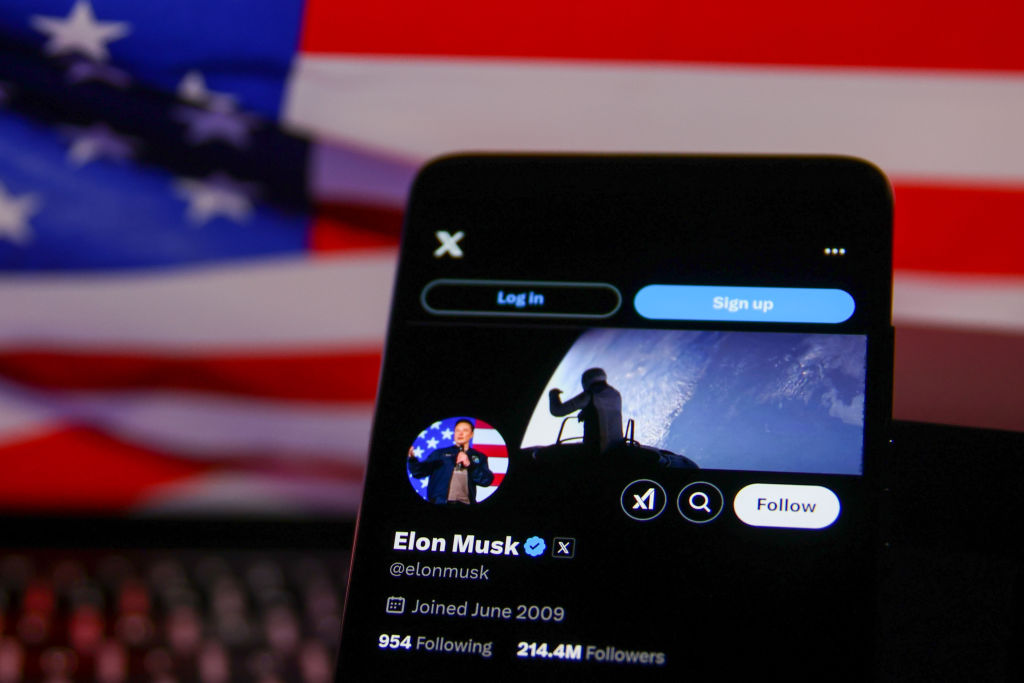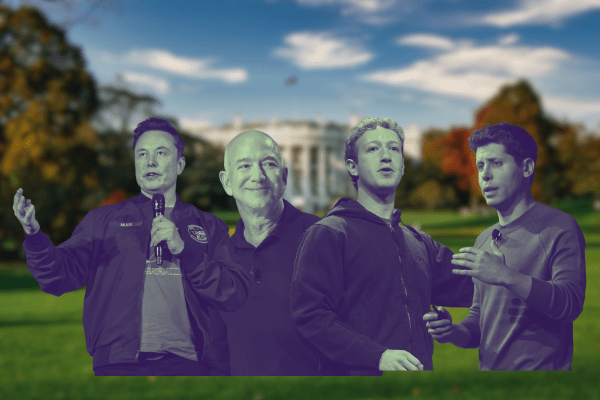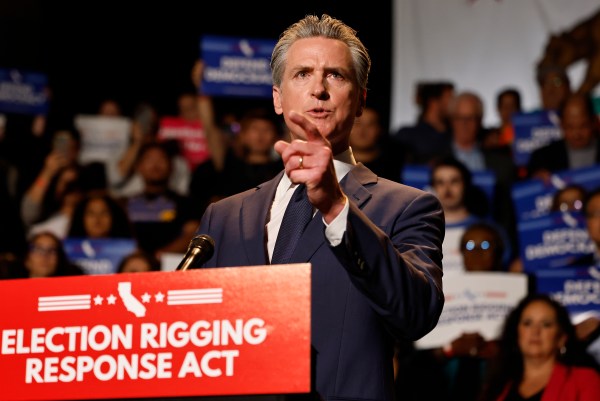What, exactly, is Elon Musk up to? The South African-born billionaire had a busy weekend, with his team of exceedingly young disruptors at the Department of Government Efficiency working overtime to implement the old Facebook company motto: Move fast and break things.
But when it comes to Washington, it’s Twitter that has become real life—inspiring Musk in his quest to reshape the federal government and exert influence over American politics.
Musk’s weekend of political disruption, conducted in large part on his social-media platform known as X, reflects how the tech bro-in-chief has, in his capacity as a “special government employee,” merged the online world with the real one.
Career officials at the Office of Personnel Management have already been locked out of their computer systems by Musk’s aides, who have descended on the agency that manages the federal workforce. This followed the resignation of a senior Treasury Department official (who was briefly the acting secretary) after tussling with the DOGE team over its access to the department’s vast payment system.
Musk’s DOGE foot soldiers are stomping their way into the bureaucracy to smash it up while Musk himself, in his role as President Donald Trump’s consigliere, continues to use his massive social media platform X to target perceived enemies, from Republican members of Congress to recalcitrant civil servants. And few in non-MAGA Washington—from Congress to K Street—seem to know what to make of Musk’s role. One Republican lobbyist described it succinctly: “Wild shit.”
The terminally online Musk is flexing his new power as a bruiser for Trump and the MAGA movement, fueled by the feedback Musk’s superfans feed him on his own platform. He then takes those half-baked or conspiratorial ideas that he can escalate to the widest possible audience with a tap of his fingers, which has become its own source of drama in Trump 2.0.
Take one of Musk’s more remarkable mini-dramas of the past few days: training his digital fire on Sen. Todd Young of Indiana. Young is one of the two Republicans on the Senate Intelligence Committee considered to be a potential “no” vote on Trump’s nominee to lead the intelligence community, Tulsi Gabbard—and as with the holdouts on other nominees, the online MAGA movement has been agitating to find ways to squeeze him.
Starting early Sunday morning, Musk amplified questionable criticisms of Young that focused on his honorary seat on the board of the National Endowment for Democracy, a nonpartisan, non-governmental organization that issues grants to promote democratic ideas abroad. He then declared the second-term senator a “deep-state puppet” a few hours later, responding to a tweet accusing Young of having a “clear conflict of interest” with respect to his vote on the Gabbard nomination.
All was seemingly forgiven later in the day, however, with Musk deleting his initial tweet castigating Young and declaring that he had had an “excellent” conversation with the senator.
“I stand corrected,” Musk tweeted. “Senator Young will be a great ally in restoring power to the people from the vast, unelected bureaucracy.”
What did the two discuss? A spokesman for Young told The Dispatch that “Senator Young and Mr. Musk had a great conversation on a number of subjects and policy areas where they have a shared interest, like DOGE.” If the two men discussed the Gabbard nomination, neither Young’s office nor the White House is saying.
But even if Young, who isn’t up for reelection until 2028, offered no commitment on Gabbard one way or the other, the flap is the latest warning to Republicans looking to avoid being in Musk’s sights—or even those of his Twitterati. It was Musk, after all, who funded (to the tune of about $290 million) much of the infrastructure that helped Trump win in November, and he has already pledged to play a big role in the 2026 midterm elections—including in primaries.
Back in the executive branch, the Musk approach appears to be getting results, particularly with the dismantling of the United States Agency for International Development (USAID), the chief administrator of the country’s foreign developmental aid. That process began when Musk’s DOGE team won a standoff with senior USAID leaders on Saturday to gain access to the agency’s classified information and to move ahead with the abrupt closure of USAID headquarters in Washington on Monday. “USAID is a criminal organization,” Musk tweeted ominously on Sunday. “Time for it to die.”
(CBS News reported on Monday that USAID’s legal obligations to administer foreign aid will be absorbed by the State Department, not far off from a proposal from Project 2025’s recommendation for the agency. Secretary of State Marco Rubio is now the acting USAID administrator.)
While it’s hardly fair to call it a co-presidency, Musk’s assertion of power continues apace, while Trump seems to approve. On Sunday evening, Trump told reporters the agency was rife with “radical lunatics” and praised Musk for doing a “good job” in his role at DOGE.
But the actual president offered a hint that there could exist, somewhere, a limit to Musk’s authority. “Sometimes we won’t agree with it, and we’ll not go where he wants to go,” Trump said.
To see where all this could be going, it may be useful to look to the developments at Twitter/X after Musk’s purchase of the company in 2022. He made some initial splashy displays to signal change was coming to the platform, followed by a mass exodus of its existing workforce by way of both layoffs and resignations. Musk’s innovations and changes to the product have been a mixed bag, ranging from the well-regarded Community Notes feature to the restoration of suspended accounts that reopened the platform to racists and conspiracy theorists.
The elite consensus in the weeks and months after Musk took things over was that Twitter was an “unmitigated disaster” under his stewardship, losing both value and cultural cachet while appearing threatened by competitors. But Twitter, now called X, has survived, buoyed by the political favor it gained from the right and the power of Musk’s own celebrity to keep it a relevant platform.
Yet X is also demonstrably worse than before Musk took a blunt object to it in the name of free speech: less useful during breaking news events, more littered with spambots and pornography, and rife with bad information and propaganda. Twitter as originally conceived had its problems, but only the most loyal Musk partisans find the experience better than before.
So for those in Washington waiting to see this Musk-led effort to reshape the government either lose favor with Trump or collapse on its own, it may be that neither happens. A DOGE-ified government will almost certainly exist on the other side. But will anyone be pleased with the results?










Please note that we at The Dispatch hold ourselves, our work, and our commenters to a higher standard than other places on the internet. We welcome comments that foster genuine debate or discussion—including comments critical of us or our work—but responses that include ad hominem attacks on fellow Dispatch members or are intended to stoke fear and anger may be moderated.
With your membership, you only have the ability to comment on The Morning Dispatch articles. Consider upgrading to join the conversation everywhere.